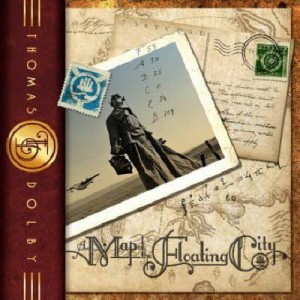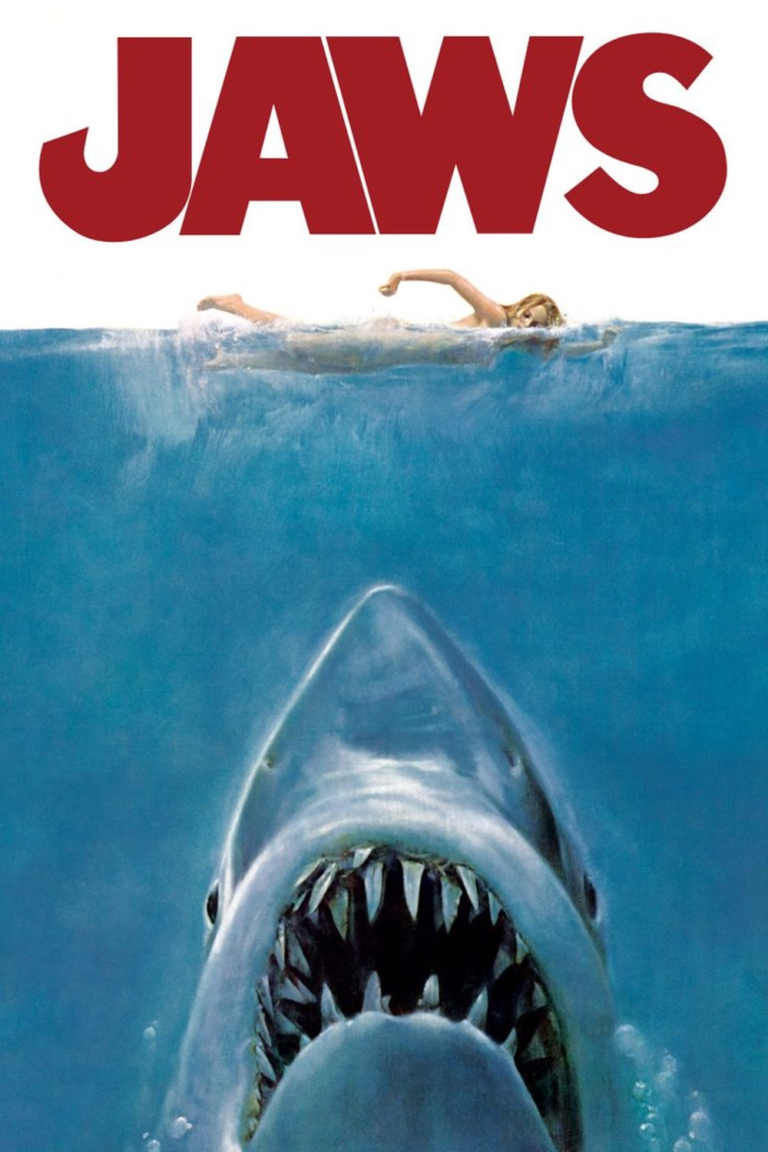 Thomas Dolby
Thomas Dolby
“A Map of the Floating City” (single-CD edition)
Lost Toy People Records
Producer: Thomas Dolby
Our Score: 4 out of 5 stars
“She Blinded Me With Science”. It’s a song that is included on so many greatest hits of the 80’s compilations that one could easily view Thomas Dolby as being the definitive MTV one-hit wonder boy in an era known for flash-in-the-pan artists. But to know Dolby only for “Science” is to ignore a career that includes five albums that consistently explored a broad range of musical styles and thematic content . And then, after 1992’s “Astronauts and Heretics”, he effectively disappeared.
“A Map of the Floating City” – Dolby’s first album of original material in 20 years – finds him once again refusing to be tied down to any one genre of music. And, for the most part, it works so well that it’s hard to believe he’s been absent for so long. On it, he combines two of his innate abilities – instrumental virtuosity in a wide variety of genres and superlative storytelling . Biographical in nature, the album itself is comprised of three musical novellas: “Urbanoia”, “Amerikana” and “Oceanea” and while the album as a whole is cohesive as a complete work, the mood varies as each of its chapters unfold.
The four songs that comprise “Urbanoia” are easily the most brash. The opener, “Nothing New Under the Sun”, with its staccato snippet lyrics, anchoring drum line and guitar accentuation, is as close as “Floating City” gets to including a straightforward rocker. Although not mind-blowing, it’s a solid track that serves to whet the palate. Similar in its simplicity, “A Jealous Thing Called Love” plays as an upbeat version of “I Scare Myself”, a Dan Hicks crooner classic that Dolby covered on 1984’s “The Flat Earth”.
But not everything that Dolby touches turns into sonic gold. “Spice Train” is the City’s most synth-laden resident. It’s fun but by the time the ever-clever Dolby tries to prevent the track from succumbing to being a mere piece of danceteria fart-funk fluff by infusing it with wafting eastern-derived musical strains, it’s been derailed by its own popish simplemindedness. “Evil Twin Brother” is basically Sting’s “An Englishman in New York” after it’s been seduced by the dark side. Edgy and occasionally dissonant, it’s the first track where we hear Dolby’s unflappable ability to tell a vivid story through simple imagery but the herky-jerky alternating musical dynamics are so jarring that the song itself winds up being the album’s weakest link.
The mid-section of the album demonstrates Dolby’s ability to roll the dice by working in multiple musical genres and repeatedly coming up a winner – although, lyrically, he always seems to bet on black within “Amerikana” as the stories always have a somber tone either consistently throughout or as a sudden turnaround at the song’s end (in the case of “Love is a Loaded Pistol”, said weapon winds up being an actual firearm). Even “The Toad Lickers”, a country/bluegrass romp that would make any good ole’ boy jingle and jangle his spurs, can be seen as a biting satire of pugnacious backwoods culture. The epic “17 Hills”, featuring guest guitarist Mark Knopfler of Dire Straits, finds everything that works well within the boundaries of “Floating City” in perfect harmony. Playing like an everyman drama in three acts, Dolby’s songwriting talents in tandem with his ability to evoke emotion through music have never been better displayed than within this lover’s tale of a jailbreak gone wrong. It’s a story so engrossing it would even cause the ever-esteemed master of melancholy, Richard Thompson, to shed a tear.
“A Map of the Floating City”s final destination is the often tranquil “Oceanea”. In the sub-section’s title track, Dolby creates an atmosphere so lush and soothing that one cannot help wanting to stay there longer than its short three-minute runtime allows even if his lead vocal is drenched in the most overused and annoying vocal effect in recent memory, Auto-Tune – something that was not true of the track when it was included on the “Oceanea” EP that was released earlier this year. Why the track has been modified in this way for the full-length album is as mysterious as the Bermuda Triangle. It’s still a great song, though, and the guest vocals by Eddi Reader send it soaring.
The remaining tracks, “To the Lifeboats” and the Brazilian-flared “Simone”, are fine examples of Dolby’s ability to generate great music in a myriad of styles. The mid-section of “Lifeboats” rocks out so hard with power chords and fuzzbox vocals that it’s easy to visualize Dolby himself clad in heavy metal garb while a small Stonehenge monument slowly descends into his recording studio. But in its closing third, the song settles into the quieter aural landscape that makes the album such a worthwhile journey. The roads through Dolby’s “Floating City” aren’t completely devoid of potholes but when it truly sails, it’s poetry in motion.
“A Map of the Floating City” will be released on October 25th, 2011.
For more information about Thomas Dolby, visit www.thomasdolby.com


Dave, thanks for the review. There are a couple of typos in there, including the titles ‘Urbanoia’ and ‘Love Is A Loaded Pistol.’ Plus, to set the record straight, the *only* difference between the EP and Album versions of the song ‘Oceanea’ is that the album version starts with an instrumental half verse. But the vocal performance and effects are identical. And there is no Auto-Tune (TM) used on the vocal, as has been extensively discussed elsewhere. All this you could have verified before your review by asking me, or by reading threads on my web site forum, instead of going ahead and printing something incorrect. Best, TD
Hi Tom. Please accept my apologies about the typos. I’ve taken the liberty of going ahead and correcting them so that future readers can see the correct titles to both “Urbanoia” and “Love is a Loaded Pistol.” As far as the Auto-Tune business is concerned, the effect on the vocal definitely sounded like Auto-Tune to me when I listened to the advance copy of the album. I certainly believe you that it isn’t, but I think the casual listener will hear your vocal on “Oceanea” and think “Oh…he’s using that same thing that Cher used on ‘Believe'”. To me, whether or not it really is on a technical level is only so relevant. Much in the same way that Helvetica and Arial are different fonts, they’re pretty much identical on an aesthetic level. I just listened to advance CD and the “Oceanea” EP and I beg to differ in terms of the presence of the effect on the track as they are presented in both. On the EP’s version, your vocal becomes fuller and much less effect-laden at the 1:23-mark; on the full CD it’s there throughout. Perhaps the advance I received is somehow different from the disc that will be released on the 25th? Whatever the case may be, “Floating City” is a really wonderful album, Tom. Having been a fan of your work since purchasing my Harvest-issued vinyl copy of the “Science-less” TGAOW in 1982, I’m *very* happy that you’re back and it’s an honor to chat with you in this forum. — All the Best, DP
I agree with Dave Picton – Oceanea sounds as if it includes Auto-Tune – it really doesn’t matter what form of electronics were used to create the sound. Surprising that Mr. Dolby was so concerned with this one aspect of a very positive review to become so scolding and petty (really Thomas? every reviewer is supposed to call you personally to discuss minute aspects of each track – come on). Having said that, I think the new CD is excellent and I enjoy ‘Oceanea’, even with the Auto-Tune sound alike.